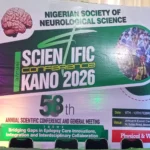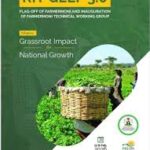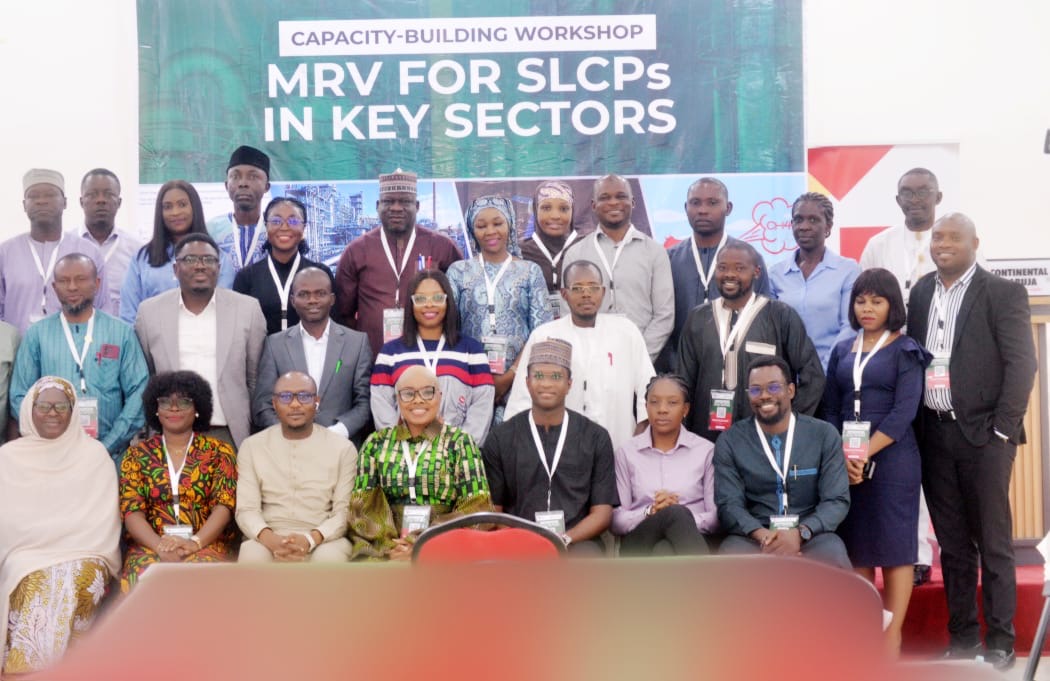By Angela Atabo
The National Council on Climate Change and the Stakeholder Democracy Network (SDN), have built the capacity of 19 Ministries, Departments and Agencies (MDAs) on Monitoring, Reporting, and Verification (MRV) of Short-Lived Climate Pollutants (SLCPs).
Director-General of NCCC, Mrs Omotenioye Majekodunmi, said the Capacity-Building Workshop on MRV for SLCPs in Key Sectors aimed at enhancing the technical know-how of stakeholders.
She said the workshop was to enhance policy development, and implementation strategies targeting SLCPs, which include methane, black carbon, Hydro Fluorocarbons (HFCs), and tropospheric ozone
According to Majekodunmi, NCCC’s primary mandate is to steer Nigeria towards a low-carbon, green, and inclusive economy and a robust MRV system is the bedrock of this journey.
“MRV is far more than a technical exercise. It is a fundamental pillar of modern climate action.
“It is the process of establishing credible, transparent, and accurate systems to track our progress in mitigating greenhouse gas emissions and adapting to climate impacts.
“In essence, MRV answers the essential question, are we making a difference? A well-functioning MRV system helps to track GHG emissions on levels and provides data for informed decision-making.
“It not only gives us that decision-making data, but it gives us the empirical evidence, which is always needed to design effective policies and interventions, accountability, and transparency.”
Majekodunmi added that it allowed Nigeria to demonstrate to the international community, investors, and citizens, that her climate commitments were being met.
According to her, a strong MRV system is not just a reporting requirement but a prerequisite for unlocking and attracting additional climate finance.
She said that the workshop demonstrated the nation’s readiness to generate high-intensity carbon credits, which would allow Nigeria to attract private sector investment and also strengthen the integrity of our credits.
Mrs Florence Ibok-Abasi, Country Director of SDN, explained that short-lived climate pollutants, such as methane, black carbon, and hydro fluorocarbons, have significant impact, not only on climate change, but also on public health, food security, and sustainable development.
Ibok-Abasi said that addressing them was therefore very central to Nigeria’s efforts to reduce emissions, improve air quality, and protect the health of our people.
“Developing robust MRV systems is essential for ensuring that our actions are measurable, transparent, and aligned with both national priorities and international commitments, including our new nationally determined contributions.
“By strengthening these systems, we are better equipped to track progress, attract support, and deliver results that will benefit our communities and environment.”
Also speaking, Sina Spiegler, Associate Expert at Climate and Clean Air Coalition Coalitio(CCAC) Secretariat, described CCAC as a global partnership of governments, intergovernmental organisations, civil society, working together to reduce short-lived climate pollutants.
According to Spiegler, CCAC is built on the simple but powerful idea by taking fast, targeted actions on SLCPs.
She said that with one of the most ambitious national SLCP strategies in Africa, Nigeria has shown how climate action could be firmly rooted in local realities.
This, she said, was by prioritising public health, livelihoods, energy access, environmental justice, especially in vulnerable regions like the Niger Delta, where air pollution is a real issue.
In his presentation, Dr Jude Samuelson, Head of Environment and Climate Change, SDN, urged the participating MDAs to prioritise the integration of MRV within their respective institutions.
Samuelson emphasised that strengthening the operationalisation of MRV for SLCPs across key sectors was essential, and should align with the overarching institutional frameworks guiding national climate policy.
He added that the ongoing intervention, supported by the CCAC, was aimed at strengthening the MRV process across MDAs and ensuring a well-coordinated flow of emissions data.
According to him, this will contribute to a harmonised MRV system for SLCPs.(NAN)
Edited by Deji Abdulwahab












